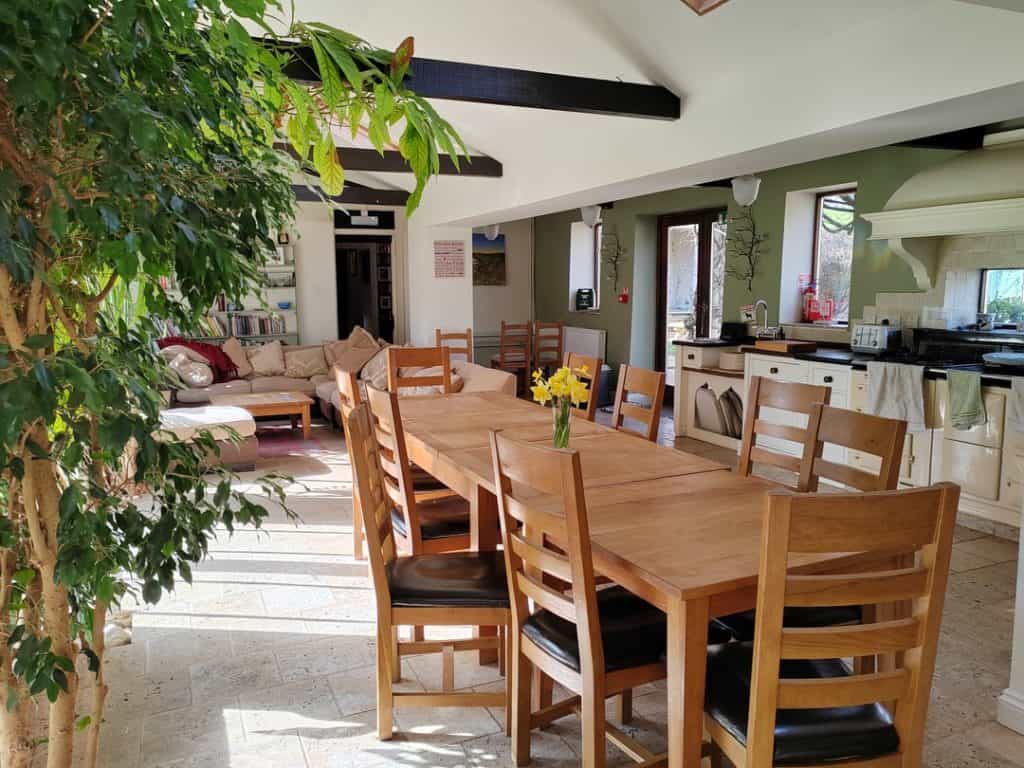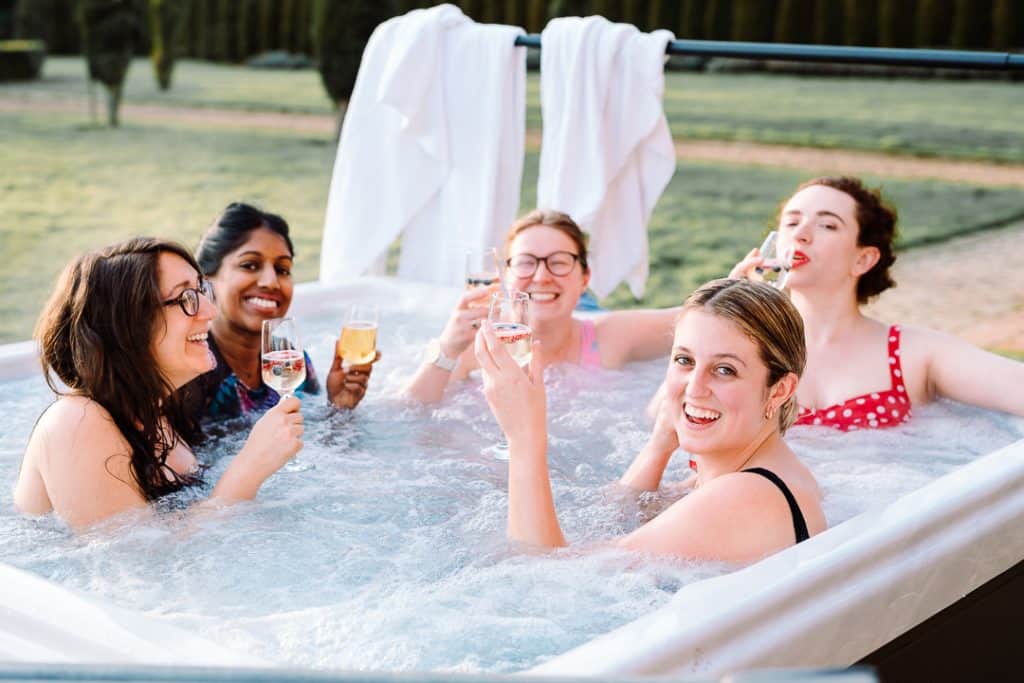You see those amazing retreats for business or creatives, in gorgeous places, with experts on hand, and cocktails in the evening, full of likeminded people, and you think to yourself how wonderful it would be to have a chunk of time to work on your business or your art, uninterrupted.

Then you look at the price tag and instantly tell yourself you can’t indulge in that, it’s far too much money and you can’t justify it.
And when you’re new in business, in those first months or years when money can be tight and you’re investing in equipment or training which takes up any spare money you do have, perhaps you can’t.
But there’s no reason at all why you should deny yourself decent planning time, just because you can’t afford the posh retreats right now. (And you totally will get to the point where you can go on all the ones you drooled over!)
And the best bit – you don’t have to fly halfway across the world to make a big impact on your business!
Time to DIY!
You can either do this alone or with other likeminded people – depending on your (and their) preferences, and also schedules etc. I’ve done both, and got an almost unfeasible amount done in both formats. Though as I live alone, the non-solo retreat had a lot of added value for me. Equally I know people who have treasured alone time because home life is full of their loved ones.
You can also tailor it to your budget – cheap and cheerful or luxury indulgence.

You will need:
A venue
For shorter retreats, a hotel or self catering space within an hour’s drive or train journey of where you live is idea. For longer retreats, the world is your oyster!
This recommendation is purely for practical reasons and can be ignored if you wish. One of my most successful retreats was a couple of days in Wincanton, a good four hour drive from home. Utterly lovely in every way, except the five hour traffic-filled journey home on a rainy Sunday. Stay within an hour’s radius and you can spend more time immersed in planning and less time travelling, while still feeling like you’re away from home, and not popping back to check on the washing, or whatever.
Whether your venue has an attached or nearby spa or other activities or not is totally down to you – I’m eyeing up this one with horse riding nearby for my next business escape!
Time
Ideally book for two nights or more. Two nights gives you a full 24 hours there as well as the day you arrive and the day you leave, which is surprisingly useful. Four to seven nights goes very quickly but is also a glorious stretch of time if you can manage it. You can do it on one night if you want to, but try two if you can sort the pet/child care.
Tools
The tools of your trade – pens, paintbrushes, canvases, camera, material, sewing machine, etc etc. Plus whatever planning tools float your boat. Alongside my laptop and my cameras, mine are invariably flipchart pads and markers so I can dream big, my journal and a fountain pen for working through tangles of thoughts, and a phone/tablet so I can snap and digitise my finished plans. Though I often get so absorbed in doing the work that I totally forget to take the making of or behind the scenes photos along the way!

Your favourite books, courses and articles
Or any you’ve flagged during the previous six months or so which caught your attention – a retreat is the perfect time to get stuck into those exercises you know will help but you never normally have time for.
Music
I like to take mini speakers with me in case I can’t plug my tablet into the TV in my room. I have been known to make Spotify playlists for concentrating and ideas sessions and I always work in dance breaks to my retreat time. Learning new steps activates a different level of my brain and my creative work is always better for it.
People to plan with (optional)
The magical connection of likeminded souls can be incredible. Having people with you on retreat is also fabulous so you can go out for lunch in between, bounce ideas off each other, plan collaborations, read each other’s drafts and laugh at terrible names you’ve come up with for perfectly good products. But it can also be a beautiful experience to really immerse yourself solely in YOUR creative practice or business, to work on only what you know you need, and not to have to worry about anyone else’s timescales.
If there are a group of you, see if there are any skills you can swap in scheduled sessions – is someone a graphic designer and would be happy to advise on pinnable images, in return for having some decent photographs taken for their website? Is there a coach who would love to swap some in depth coaching for some equally in depth marketing strategy and advice? If you’re all different artists or creatives, could you all do a short workshop in your own practice so everyone can try it and stretch their creative muscles?
Technology
What this means will depend on the purpose of your retreat. The first one I went on required nothing more than a tablet to look up places for dinner and check out domain names for new projects. I now can’t travel without at least my camera bag, and the last retreat I went on involved filling my car with twenty one bags, boxes and cases because I took all my costumes, lights and an entire desktop set up with me for the week.

If your intention for your retreat is to write and produce blog posts or an ebook, you probably want a laptop and notebook, maybe an external hard drive, maybe a mouse so you don’t get shoulder ache.
Most places you’ll stay will have wifi, though the quality varies. Whether you take advantage of this is up to you – for me it varies, as some of the places I book are chosen deliberately for their lack of phone signal so I can get right away from it all. Adding wifi to that would defeat the purpose somewhat!
What next?
What do you do when you’re there? Well, you should have a little bit of settling in time – choosing rooms if you’re with other people, unpacking, getting yourself organised. If you’re self catering and with people, figuring out any schedules for food can be helpful.
For my big week long writing/creative retreat each year we’ve fallen into a very doable routine of splitting into pairs, each pair cooks once during the week and the other nights we do a pub dinner, a fish and chips on the beach evening, and on the last night a ready-steady-cook style using up of random ingredients left from the week!

Beyond that – make a cuppa and GET STARTED!
You will almost definitely panic at the expanse of time, but don’t – this isn’t the only time you’ll ever get creative or thinking time, I promise!
I often by pinning sheets of flipchart paper to the wall, and getting a visual map of everything current and relevant – whether this is projects, businesses or both depends on who I’m away with and what the overall purpose of the retreat is.
For business planning, I branch out into one sheet for each business or project, and list out what I currently offer – products, services, opt ins, freebies, in person and online.
By the time I’ve done this for everything I do, I’m usually in the swing of it and have a good idea of what I can say goodbye to with gratitude, and what I want to expand, and ideas for new products and services, workshops and creations.
Creatively, I usually have some ideas before I go of what I might want to do on retreat, and I try for a good combination of actively creating new work, researching and reading, and experimenting with the willingness for it to all go horribly wrong – which I don’t often let myself do in my day to day life because my pure creative time is always a bit limited.
From there it’s in your hands! You’ll find that inspiration strikes as you go – the most important thing is to take action and start. And don’t forget to have fun, too!

Some ideas to try:
Relevance will depend hugely on what you do and why you’re away, but here’s an incomplete list of possibilities!
- read – fiction, non fiction, research, blogs you’ve been meaning to catch up on, all sorts
- rest, including naps
- spend time getting inside the head of your ideal client
- write a set number of blog posts so you’re sorted for several months
- take a walk and get some photographs to use in your social media scheduling in future
- make a list of questions you’ve been asked in the past year (professionally or personally). Could you turn those into services or products that would help people?
- move your body – dance, walk, run, yoga, stretching, swimming – anything which gets your actual muscles moving
- rewrite the front page of your website so it reflects you and your personality, and isn’t a clone of sites you used in your corporate days
- take a step back and assess all the elements of your portfolio career, or your income streams if you have more than one. Is the balance right for you? Is there anything you’d like to change?
- dedicate a portion of the retreat, or the whole thing, to learning a new skill that you need or would like in your business. This could be anything from product photography to copywriting, WordPress DIY to collaging… your imagination is the limit. You could teach yourself online, invite a specialist to the retreat, or you could base your retreat near somewhere that teaches what you’re after and incorporate the course or workshop into it.
- write – a book, a short story, some content for your newsletter or your business, your about page – anything you’ve been wanting to spend time writing
- make a film to share with your followers and subscribers – let them see the real person behind your business and/or your art
- schedule a call with a mentor or coach halfway through your retreat – let them help you work out any tangles you’re encountering
- make art. Even if you’re not an artist – see what you come up with.
- journal. Actually, I’d say journal anyway, alongside everything else you do, because it remains the single best way I know for getting thoughts out of my head and making some sense on paper!
Have you been on a retreat? Or been inspired to plan your own? Let me know – I’d love to hear about it!


